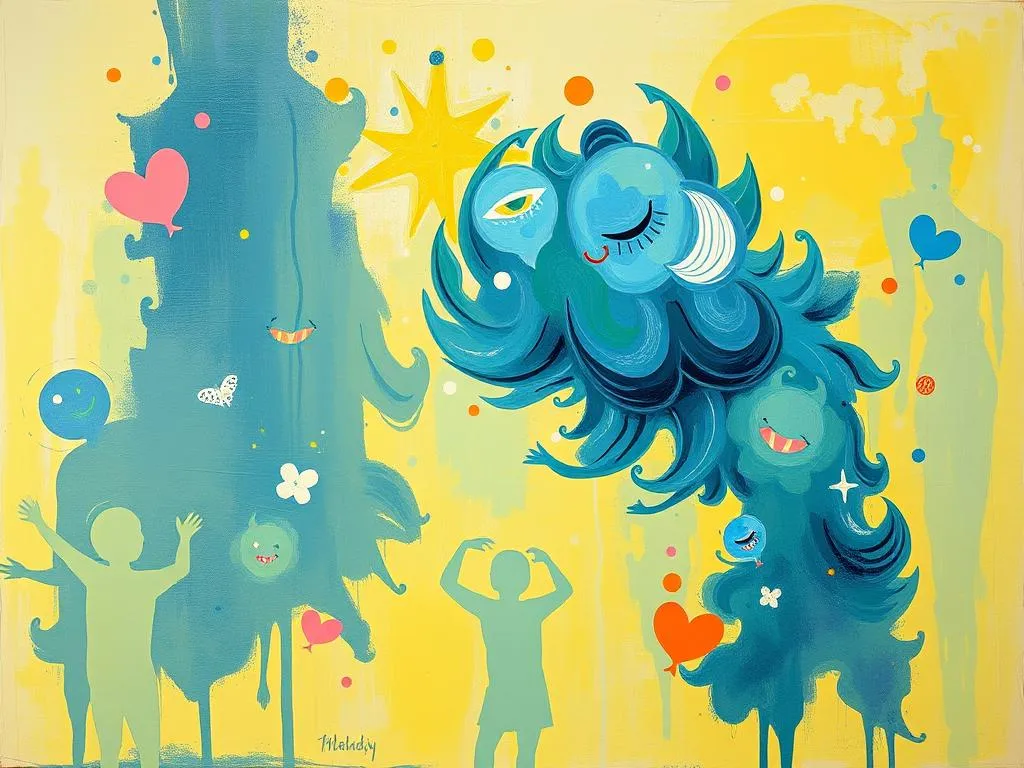
Introduction
Dreams have long fascinated humanity, serving as portals to our subconscious minds. Among the myriad themes that populate our nightly narratives, custody dreams stand out for their emotional intensity and complexity. These dreams often elicit strong feelings, prompting individuals to explore their relationships, responsibilities, and inner conflicts. The concept of custody itself is laden with implications about control, care, and attachment, making it a particularly intriguing subject for psychological and symbolic exploration. Understanding the meaning behind custody dreams can illuminate aspects of our waking lives, shedding light on our personal experiences and emotional states.
Symbolism and Meaning
At the core of custody dreams lies the symbol of custody itself, which frequently represents a struggle for control or a desire for stability. In many cases, custody symbolizes the protection or nurturing of something precious—be it a child, a relationship, or even one’s own emotional well-being. This dream can reflect a person’s feelings about their own responsibilities and the weight of expectations placed upon them.
The presence of a child in these dreams is particularly significant. Children often symbolize innocence, vulnerability, and potential. If a dreamer finds themselves fighting for custody of a child, it may indicate an internal struggle regarding their ability to nurture their own dreams or ambitions. Conversely, dreaming of losing custody could reveal feelings of inadequacy or fear of losing something valuable in one’s life, such as a relationship or a personal goal.
In addition to the child symbol, other elements within the dream can enrich its meaning. For instance, the setting—a courtroom, a home, or a public space—can provide context that shapes the interpretation. A courtroom setting might suggest a need for justice or resolution, while a home environment may indicate a longing for security or a sense of belonging. The characters involved in the dream also play a crucial role; they may represent different aspects of the dreamer’s psyche or real-life relationships that influence the dream narrative.
Various interpretations can also stem from the emotions experienced during the dream. Feelings of anxiety, fear, or relief can indicate how the dreamer perceives their responsibilities and relationships in waking life. For example, a dream characterized by intense conflict might reflect unresolved issues with a partner, parent, or sibling, suggesting a need for communication and understanding.
Key Scenarios and Variations
The realm of custody dreams is vast, encompassing numerous scenarios that can shift the interpretation significantly. A few common variations include:
-
Fighting for custody: This scenario often indicates a strong desire for control and a sense of urgency. The dreamer may be grappling with significant responsibilities in their waking life. It could also reflect a fear of losing something important, not necessarily a child, but perhaps a job, relationship, or even a passion that they feel is at risk.
-
Losing custody: This dream scenario can evoke feelings of helplessness and despair. It may signify a perceived loss of control in some aspect of the dreamer’s life, whether it’s related to a relationship, a project, or personal aspirations. It could also indicate a fear of abandonment or rejection, stemming from deeper insecurities.
-
Sharing custody: Dreams involving shared custody arrangements often reflect themes of compromise and collaboration. They may indicate that the dreamer is working through shared responsibilities in a relationship or project. This scenario can also symbolize a need to balance control and freedom, highlighting the importance of cooperation in one’s life.
-
Custody hearings: Dreaming of a custody hearing can underscore feelings of judgment and evaluation. The dreamer might feel scrutinized or judged in their waking life, particularly in their roles as a parent, partner, or professional. This scenario may invite the dreamer to examine their self-worth and the expectations they face.
-
Custody of pets: While less common, dreams involving custody of pets can also arise. These dreams may symbolize the dreamer’s nurturing instincts and the care they extend to others. It may also represent a desire for companionship or the need to take responsibility for one’s emotional well-being.
Each of these scenarios can highlight different emotional landscapes and personal dilemmas. By reflecting on the specific details and emotions associated with the dream, individuals can uncover insights that resonate with their waking life experiences.
Real-Life Connections and Takeaways
Custody dreams invite a rich tapestry of personal reflection, as they often mirror our real-life struggles and aspirations. When exploring these dreams, readers are encouraged to consider how the themes of responsibility, care, and control manifest in their daily lives. Here are some insights for connecting these dreams to real-world situations:
First, consider your relationships. Reflect on your interactions with loved ones, colleagues, or friends. Are there unresolved conflicts or feelings of inadequacy that need addressing? These dreams may serve as a call to communicate openly, fostering a deeper understanding of each other’s needs and expectations.
Next, evaluate your personal ambitions and responsibilities. Custody dreams may highlight areas in your life where you feel overwhelmed or underappreciated. Are there dreams or goals you are neglecting? Use this opportunity for self-reflection to identify what truly matters to you and how you can reclaim agency over those aspects.
Additionally, think about your emotional well-being. Are you nurturing your own needs as you care for others? Dreams about custody can signify the importance of self-care and the need to establish boundaries. Consider how you can prioritize your well-being while still offering support to those you love.
Lastly, embrace the feelings that arise in these dreams. Whether they evoke anxiety, fear, or relief, acknowledging these emotions can lead to greater self-awareness. Journaling about the dream and its impact on your feelings can provide clarity and insights into your subconscious thoughts.
As you navigate your waking life, remember that custody dreams are not merely reflections of fear or anxiety; they can also be powerful symbols of your desires for connection, care, and control. By delving into the meanings behind these dreams, you can uncover valuable insights that enrich your understanding of yourself and your relationships.
In conclusion, custody dreams serve as profound explorations of our emotional landscapes. Through understanding the symbols, scenarios, and their real-life connections, we can foster a deeper sense of self-awareness and emotional intelligence. As you reflect on your own custody dreams, take the time to explore the feelings and situations they evoke, allowing them to guide you toward personal growth and understanding.







